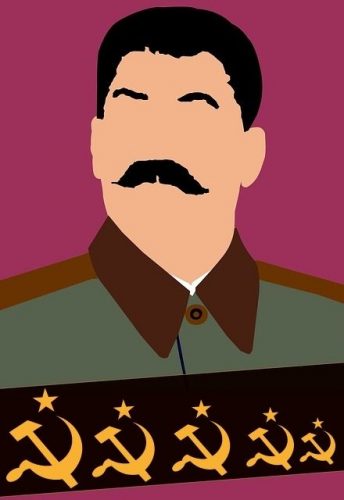Followers of Bengali leftists on social media will have observed a peculiar phenomenon developing with Russia’s invasion of Ukraine: a celebration of Russian imperialist ambitions, subliminally combined with a renewed confidence in the return of their historic champion, something of a mixture of Netaji Subhas Chandra Bose, King Arthur, and Stalinda, conducting a righteous war against American imperialism, Nato, and the European Union. Their new champion is the unlikely figure of Vladimir Putin, former KGB agent and understudy to the alcoholic gravedigger of the Soviet Union, Boris Yeltsin, but in a twist of history worthy of Stalin himself, Putin is now cast as Josef Stalin’s successor in the hardening of attitudes and members that the Bengali comrades are so thrilled to be experiencing.
In 1991, when the Soviet Union officially came to an end, the Indian left was bereft. The Bengali branches of the left were particularly upset: Who would take the place of Stalinda as the embodiment of Bangali second-hand machismo and martial vigour? Who would stand up to the American imperialists in their place? With time, the pro-Red China branch of the official parliamentary left, the Communist Party of India (Marxist) learned to live with liberalisation, and even took the Chinese line that capitalism was, sufficiently Sinified, actually socialism in the best possible form. As the Chinese Communist Party decided that capitalism with authoritarian single-party rule and Chinese communist symbolism and rhetoric could pass as ‘socialism with Chinese characteristics’, so the CPI(M) decided that the road to socialism in one or two bits of the vast subcontinent of India could take Chinese capitalosocialist forms.
Stalinda was still defended somewhere in the background by those brave enough to ignore what they now knew for sure about his misdeeds, not just from Fourth International intellectuals, or from the inconvenient Nikita Khrushchev’s 1956 speech which had so annoyed Mao Zedong (who drew conclusions from it about indirect criticism of himself). Many on the Indian left, from a fragile China-centric or steely pro-Soviet perspective, were displeased, because for all the subtleties of distinctions and 1960s splits, this was not about theory or history, but about loyalties and nostalgia. After all, Stalin had allegedly won the Second World War all by himself (it was inconvenient that Marshall Zhukov, who had had much more directly to do with that victory than Stalin, had been demoted to police chief of the Ukrainian port city of Odessa lest his hard-won prestige damage Stalinda’s own). And terrifying father figures or Ivan-the-Terribles were in short supply in Bengali history.

Now, in a new era, the immense nostalgia that the Indian left more generally, and not just the Bengali left, has always felt for the Soviet Union appears to have congealed into a longing for a resurgent Russia to take the place of the USSR as a whole: that Ukraine was also a part of the Soviet Union has been lost in translation somewhere. To be fair, official positions among official communists are not quite so wrong-headed: the pro-Red China CPI(M) said the war between Russia and Ukraine should cease, but blamed NATO for provoking Russia by expanding eastwards. The formerly pro-Soviet CPI has gone so far as to refer to a Russian invasion. And the CPI(M-L) has been more forthright in condemning Russian imperialism, perhaps demonstrating the fact that they got to the point of listening to the New Left at some point.
But a world of competing imperialisms is something for which communists have to reach back a little further to Lenin’s Imperialism pamphlet. Meanwhile, antifascist nostalgia, expressed in a support of Putin’s proclaimed desire to attack Ukrainian fascists, would wear a bit thin if the logic were then followed through elsewhere. Most countries now have fascists. Would the comrades, then, support a bombing of Germany, Hungary, or closer to home, India? By whom?
It is not particularly surprising that one of Vladimir Putin’s foreign cheerleaders in his quest to make Russia imperial again is the Indian Prime Minister Narendra Modi, a fellow traveller in the realms of authoritarian and violence-respecting politics. Now, however, we have an old-new phenomenon: not since the Bharatiya Janata Party and the Communist Party of India (Marxist) both supported a minority government from outside in the 1980s, with both parties denouncing everything ‘foreign’ as the epitome of decadent culture, were the right and left so close to each other.
Benjamin Zachariah works at the Georg Eckert Institute for Educational Media in Braunschweig, and with the project on the contemporary history of historiography at the University of Trier. He was trained in the discipline of history in the last decade of the previous century. After an uneventful beginning to a perfectly normal academic career, he began to take an interest in the importance of history outside the circle of professional historians, and the destruction of the profession by the profession. He is interested in the writing and teaching of history and the place of history in the public domain.









One Response
Brave, incisive, saucy – illuminating + enjoyable reading